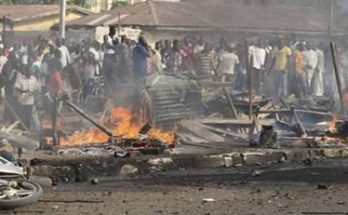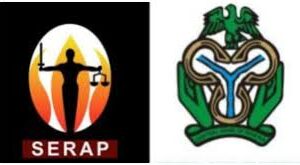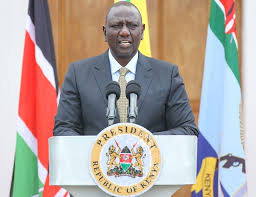It’s incomplete – Reps
Not women friendly – Tinubu
By Ezrel Tabiowo and Joshua Egbodo,
Abuja
Members of the House of Representatives, mostly of the opposition Peoples Democratic Party (PDP) extraction have picked holes in certain aspects of the N6.08 trillion 2016 Appropriation Bill, as the House concluded debate on its general principles yesterday, as well as approving its second reading.
But in an advice to the House committee on Appropriations, and the relevant others to which the Bill was referred for further scrutiny , Speaker Yakubu Dogara said they should put the interest of Nigerians at heart while considering the proposed estimates, adding that the debate which began last week, had been illuminating, and provided the needed guide for the noted imperfections to be cured, and turn the Bill into a workable Act.
During the resumed debate budget yesterday, the Minority Leader, Hon. Leo Ogor, who described the budget as incomplete, noted that estimates for some MDAs were conspicuously missing from the document.
This, he said, was a breach of the Fiscal Responsibility Act, 2007, which provided that the Minister of Finance “shall cause to be attached to the budget, revenue and expenditure
projections of all the government agencies.”
Also, in his submissions, Chairman of the House committee on Air Force, Hon. Samson Okwu, said the drop in the price of crude oil from the benchmarked $38 per barrel to $28 would naturally affect government’s revenue projections in the budget, saying there was urgent need for diversification.
Another member, Hon. Bode Ayorinde, argued that the 2016 budget estimates were not comprehensive enough, noting that the $1.4 trillion earlier fined MTN Nigeria, one of the biggest telecom operators in the country by the Nigeria Communications Commission (NCC), was not captured anywhere as an expected income to the government in the 2016 fiscal year.
Several members, including Hon. Dennis Amadi, Hon. Abdulrazak Namdas, Hon. Golu Timothy and Hon. Dennis Agbo, among many others, reiterated the need for government to diversify the economy and reduce dependence on oil as major source of revenue.
Considering the enormity of the work before the committees, Speaker Dogara said the House might suspend regular plenary for two weeks, beginning from Thursday, to allow the committees concentrate on their infractions with MDAs for defence of their respective allocations in the budget.
Also at the Senate, the fiscal document was faulted by Senator Oluremi Tinubu (APC Lagos Central), who described the bill as not women friendly.
Tinubu, who is the chairman, Senate Committee on Women Affairs, lamented that the total allocation of less than N4billion earmarked for the entire Ministry of Women Affairs in the budget which encompasses women empowerment programmes, was so meagre that if care
was not taken, government might, at the end of the day, incur the wrath of women.
According to her, the governing APC has development- driven programmes for the women folk in its manifesto, upon which they were galvanised for the party’s victory in the last election, only for them to now look abandoned, with the poor budgetary allocation.
“This budget, as far as its allocations for the Nigerian women are concerned, is not telling anything and not making any promises and must be critically reviewed at committee level”, she fumed.
Her submission: “Mr. President, distinguished colleagues, is it not true with the saying that when we educate the girl-child we have educated the entire nation. The APC in his manifesto mentioned that there is need for an all-encompassing empowerment programmes for Nigerian women, such comprehensive empowerment requires fund which should be included in the budget for implementation.
“But going through the budget for the Federal Ministry of Women Affairs, I discovered that the total allocation to the women ministry is so meagre and I think it would be the least allocation received that is allotted to a ministry.
“And when we look at the functions of this ministry, we see that the ministry is divided into two divisions; human resources and capacity building, economic services and women cooperative but when we look at the first division which is the human resources and capacity building, they are supposed to promote education, development of women in the civil, political, socio cultural and economic sectors”.



